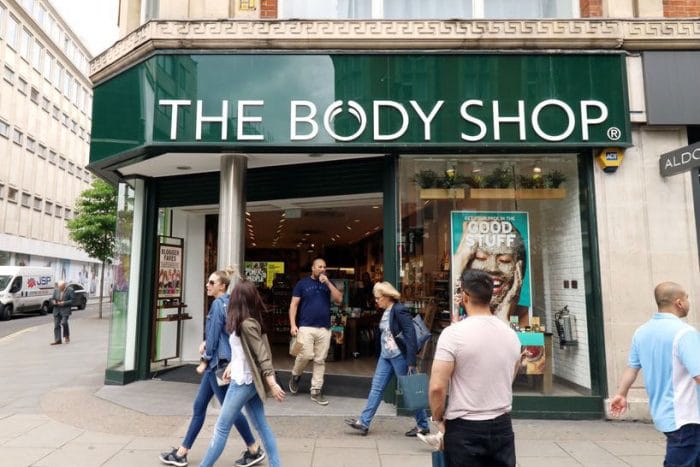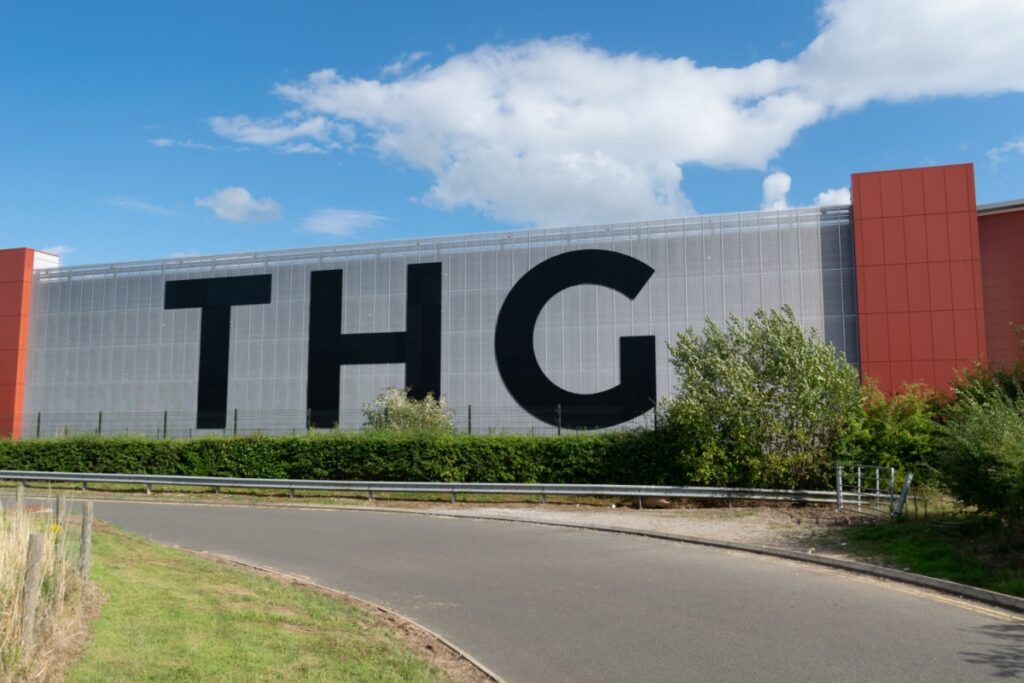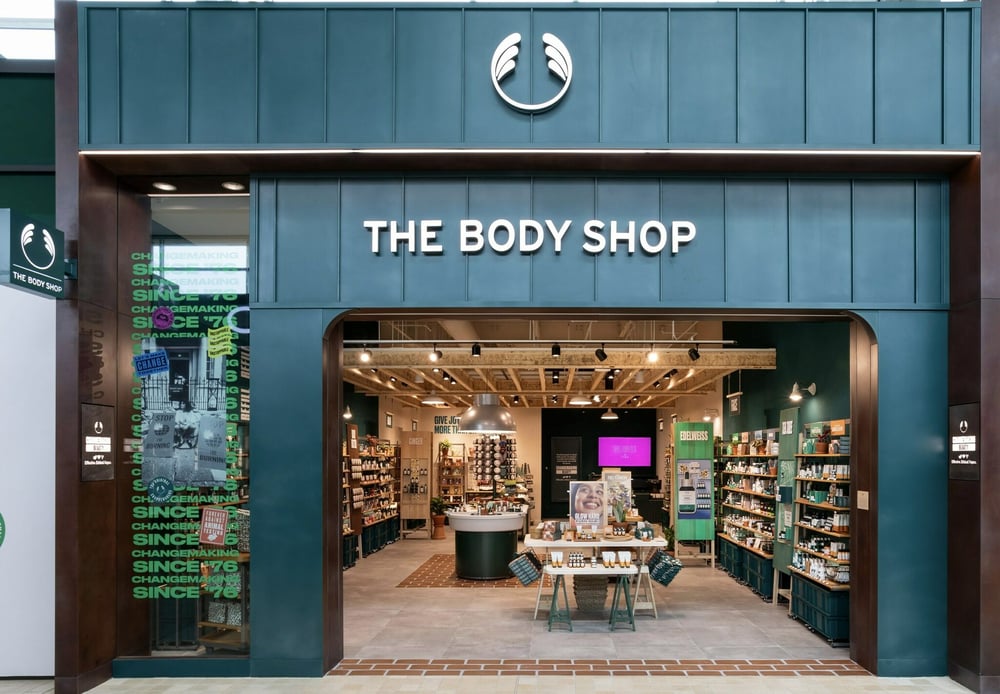The Body Shop owner Aurelius called in administrators for the retailer’s UK operations on Tuesday, just weeks after snapping up the business.
Administrator FRP said the move would “accelerate restructuring” of the retailer, which covers around 200 stores nationwide, providing it with “the stability, flexibility and security to find the best means” of securing its future.
The ethical beauty retailer’s former chief executive David Boynton described the news on LinkedIn as a “totally avoidable tragedy”, while others labelled it as “disappointing” and another “blow for the high street”.
Retail Gazette takes a look at how one of the sector’s most pioneering beauty retailers ended up in this position.
Lost in the crowd
The Body Shop was ahead of its time when it was set up by Dame Anita Roddick in 1976, promising to sell natural cosmetics that had not been tested on animals and came in refillable packaging.

The brand was one of the first to use “sustainable” and “ethical” practices, long before these became popular buzzwords and eventually, a new standard for the beauty industry.
Roddick once said “social and environmental dimensions are woven into the fabric of the company itself”.
However, in the years that have followed, The Body Shop has faced steep competition with the emergence of fellow ethical and natural beauty brands including Lush, Rituals, L’Occitane, Neal’s Yard Remedies and The Ordinary.
GlobalData analyst Tash Van Boxel explains: “The Body Shop’s success in the past was down to its distinct brand identity, with its focus on natural ingredients and fairtrade products being at the fore of its marketing, making the retailer ahead of its time.”
However, she points out that while it continues to stand by its ethical and cruelty-free brand values, “these claims have become industry standards, weakening The Body Shop’s point of difference”.
Retail consultant Mary Portas argues The Body Shop’s reputation as a trendy eco-friendly label had started to wane when Roddick sold the business to beauty conglomerate L’Oréal for £652m back in 2006.
Portas told The BBC: “L’Oreal knows how to use brands. It did not know how to run a retailer and so the soul went out of it.”
Lush CEO Mark Constantine wrote in The Times earlier this month: “L’Oréal moved manufacturing to the Philippines, where the margins were better, and marketeers discounted to create sales – and for a decade, that was the only message customers got.
“But you can’t cheapen everything, remove the values, and take more profit without the customers noticing and going elsewhere. They lost that feeling one got when buying a Body Shop product – that you were helping to change the world.”
L’Oréal eventually sold the retailer to Brazilian cosmetics group Natura & Co for £880m in 2017, after the business’ then CEO Boynton explained the brand had “run out of steam”.
At the time, The Body Shop’s operating profits had plunged 38% to £29m with sales down 5% to £783m in the year to 31 December 2016.
Reconnecting the brand with its roots
Natura’s ownership provided a boost to the struggling brand, as it strengthened its proposition through new products, new store concepts, international expansion and most importantly, a revamped look.
The brand also returned to its founding roots, becoming B Corp certified in 2019 and rolling out refillable stations across its store network in the UK and eventually the US.
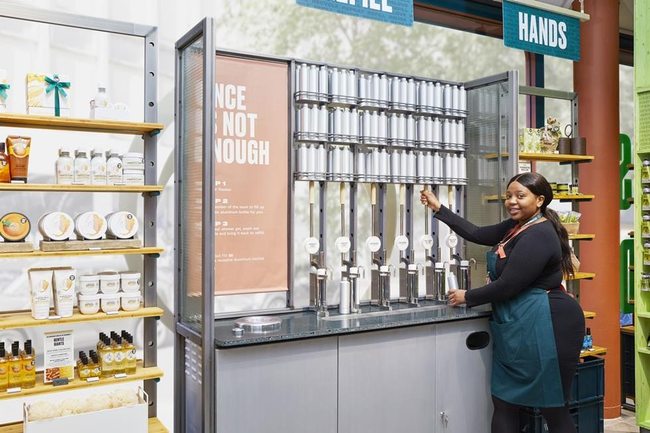
Things seemed to be on the up for The Body Shop however, soaring production costs, an increasingly squeezed consumer and weakness in its US arm hit the business in recent years.
As a result, it slid to £71 million loss in 2022 after its turnover dropped by almost a fifth.
Natura put The Body Shop up for sale in August after it claimed the business was weighing on its bottom line contributing to its sixth consecutive quarter of losses.
Administrator FRP said that the retailer had faced “an extended period of financial challenges under past owners, coinciding with a difficult trading environment for the wider retail sector”.
The Body Shop was snapped up by Footasylum and LloydsPharmacy owner Aurelius in November for £207m – a fifth of the price that Natura bought it for and less than half of its £500m valuation.
At the time, the private equity firm said it wanted to “re-energise” the business to enable it “to take advantage of positive trends in the high-growth beauty market”.
Aurelius said it would work with the retailer’s current management team “leveraging its expertise and experience in the omnichannel retail and wholesale markets”.
One of the first major moves by the private equity firm was to return and reconnect The Body Shop back to its roots by reigniting its fight against animal testing with its long-term partners, Cruelty Free International.
The move saw the retailer launch a limited-edition version of its “Forever Against Animal Testing” t-shirt, with profits made from the product going towards its charity partner.
The Body Shop also received certification from The Vegan Society branding all its product formulations as 100% vegan.
However, Aurelius’ push to “re-energise” the brand in time for retail’s biggest time of year failed to entice shoppers, with the firm admitting this week it had been unable to revive the fortunes of the business over Christmas and new year.
The private equity firm has moved quickly in restructuring the business, by closing down The Body Shop At Home and offloading the retailer’s business across most of Europe and in parts of Asia.
A spokesman for the retailer said: “The previously announced sale of most of The Body Shop’s business in mainland Europe and in parts of Asia resulted in no proceeds to the business due to their loss making nature and poor performance.”
What’s next for The Body Shop?
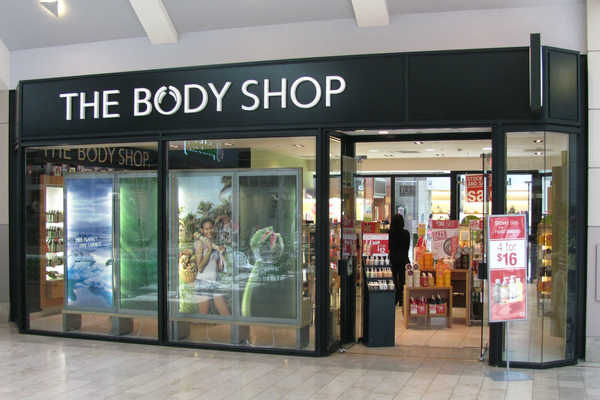
Administrators FRP said it hopes it can “find the best means of securing the future of The Body Shop and revitalising this iconic British brand”.
The likely outcome is that the administrator restructures the retailer’s UK operations by cutting costs – closing some shops, making staff redundant, renegotiating contracts with landlords – and then hands it back to Aurelius.
However, according to JDM Retail founder and chief executive Jonathan De Mello, it has quite the challenge on its hands to get itself back on stable financial footing and on equal ground with its competitors.
De Mello is confident The Body Shop will survive but says its owner will need to take the brand “back to what made it different in the first place, which is really about the environment and focusing on its products being best in class for ESG”.
He points out the retailer hasn’t shouted loudly enough about its “sustainable” and “ethical” practices, asking whether “the average person knows The Body Shop is B Corp certified”.
De Mello suggests a big factor in the retailer’s fall from grace is down to its “under invested and for the most part, poorly constructed stores”, with its shops averaging 1,500sq ft.
His comments come as rival Lush has seen recent success by revamping its store estate, investing £7.4m in new stores, relocations and refits across the UK and Europe – including a 20,000sq ft flagship in Glasgow.
The Body Shop’s collapse may have seem inevitable given its protracted decline, but with a brand that so many of us have grown up with, many are hopeful that its journey doesn’t end here.
Click here to sign up to Retail Gazette‘s free daily email newsletter

